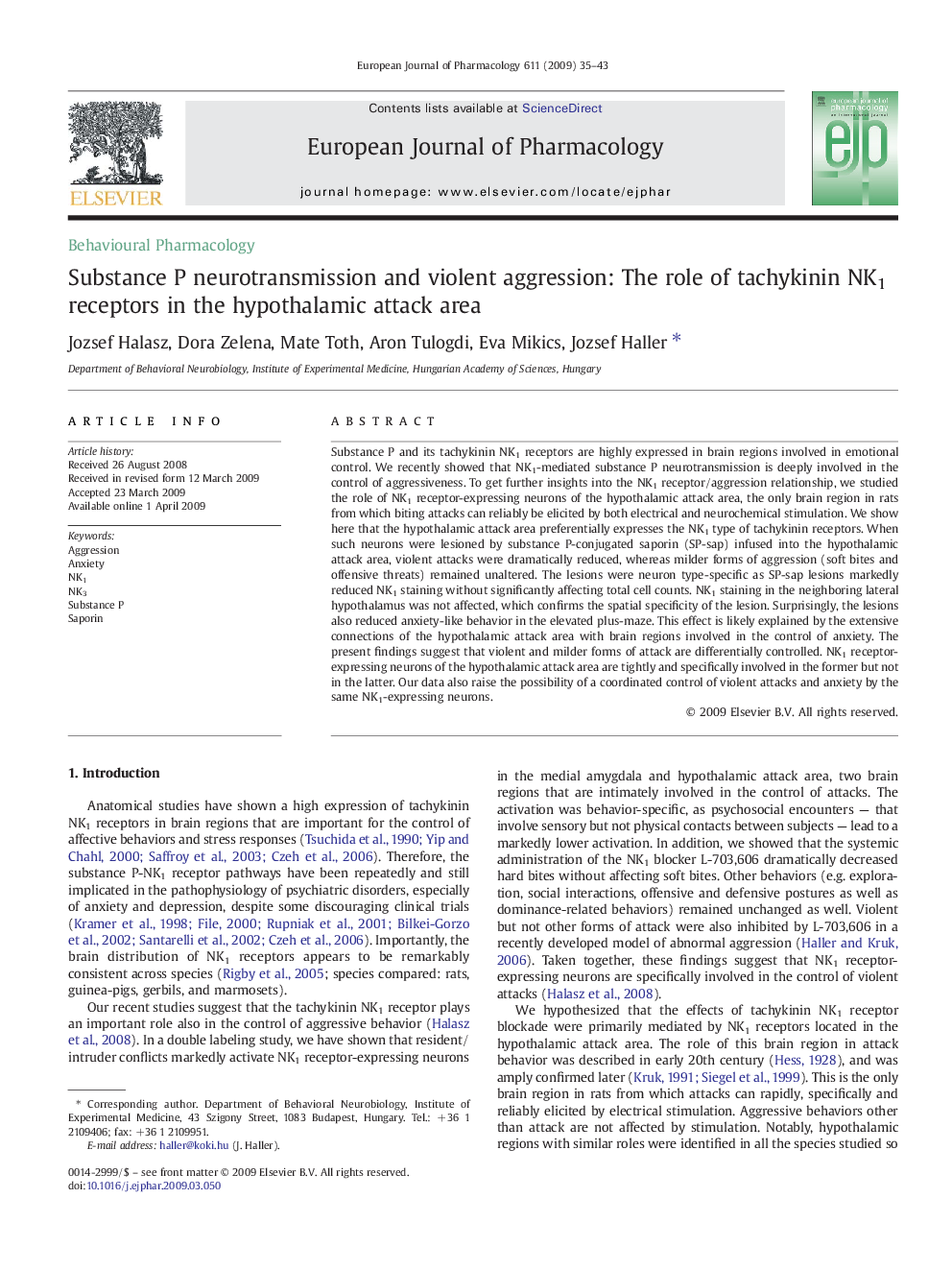| Article ID | Journal | Published Year | Pages | File Type |
|---|---|---|---|---|
| 2534309 | European Journal of Pharmacology | 2009 | 9 Pages |
Substance P and its tachykinin NK1 receptors are highly expressed in brain regions involved in emotional control. We recently showed that NK1-mediated substance P neurotransmission is deeply involved in the control of aggressiveness. To get further insights into the NK1 receptor/aggression relationship, we studied the role of NK1 receptor-expressing neurons of the hypothalamic attack area, the only brain region in rats from which biting attacks can reliably be elicited by both electrical and neurochemical stimulation. We show here that the hypothalamic attack area preferentially expresses the NK1 type of tachykinin receptors. When such neurons were lesioned by substance P-conjugated saporin (SP-sap) infused into the hypothalamic attack area, violent attacks were dramatically reduced, whereas milder forms of aggression (soft bites and offensive threats) remained unaltered. The lesions were neuron type-specific as SP-sap lesions markedly reduced NK1 staining without significantly affecting total cell counts. NK1 staining in the neighboring lateral hypothalamus was not affected, which confirms the spatial specificity of the lesion. Surprisingly, the lesions also reduced anxiety-like behavior in the elevated plus-maze. This effect is likely explained by the extensive connections of the hypothalamic attack area with brain regions involved in the control of anxiety. The present findings suggest that violent and milder forms of attack are differentially controlled. NK1 receptor-expressing neurons of the hypothalamic attack area are tightly and specifically involved in the former but not in the latter. Our data also raise the possibility of a coordinated control of violent attacks and anxiety by the same NK1-expressing neurons.
